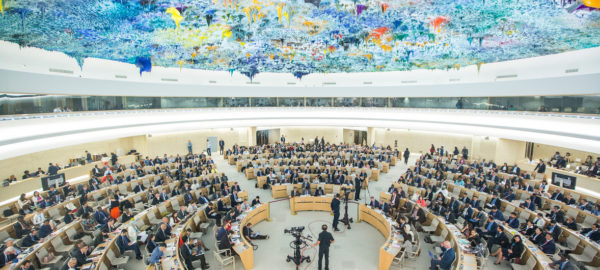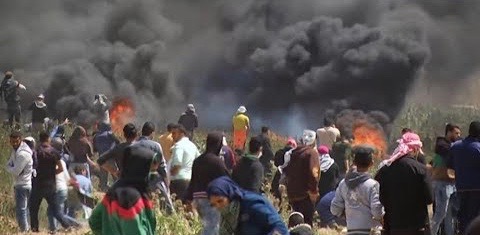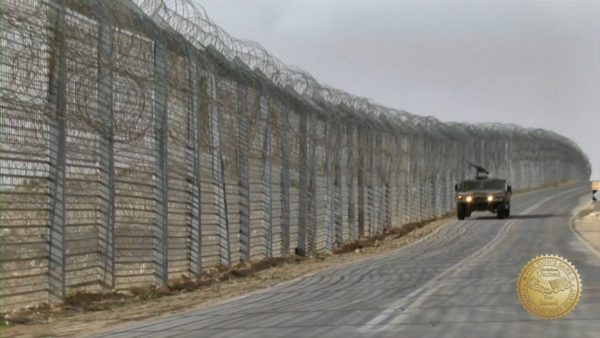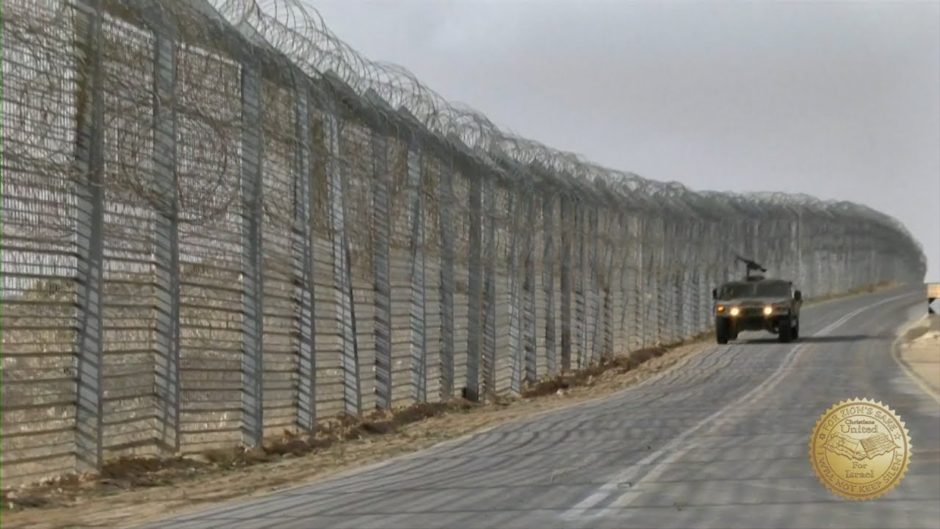A commission of inquiry, formed by the United Nations Human Rights Council, released a report last week alleging that Israel may have committed crimes against humanity in the Gaza Strip in the past year. It claims that Israeli troops killed or maimed unarmed Palestinian civilians “who did not pose an imminent threat of death or serious injury to others when they were shot …”
The deaths of innocent Palestinians is extremely regrettable, but this 25-page report, produced by a body that is invariably hostile to Israel, is incomplete, simplistic and misleading, ignores two major issues and thereby misses the point by a yawningly wide mark.

Consequently, the report does not contribute a meaningful understanding of events on the ground and is thus basically irrelevant.
For almost a year now, thousands of Palestinian demonstrators from Gaza have massed along Israel’s internationally-recognized border in weekly and sometimes nightly “March of Return” protests. These demonstrations, which have regularly turned violent, have been organized and/or orchestrated by Hamas, the ruling authority in Gaza since 2007.
The majority of demonstrators have prudently stayed away from the fortified border fence and have not resorted to violence. However, a minority of reckless, ideologically-driven protestors and members of Hamas’ security forces have stormed the barrier in an attempt to tear it down. They have also thrown rocks at Israeli troops, released flaming kites or balloons, and burned tires, all in an effort to hurt or kill Israelis and destroy farmer’s fields and nature reserves.
According to the Human Rights Council, Israeli soldiers have killed 189 Palestinians and injured more than 9,000 during the course of these protests. The Human Rights Council contends that Israel’s use of lethal force has been “neither necessary nor proportionate.”

To put it mildly, the Human Rights Council is deficient in its understanding or appreciation of several important factors.
As the Israeli Foreign Ministry correctly pointed out, Hamas has willfully ignored warnings by Israel that it would defend its border vigorously. Hamas, which rejects Israel’s very existence, has cynically exploited Palestinian civilians as human shields, knowing full well what the consequences might be.
Hamas — which has aligned itself with two of Israel’s most dangerous enemies, Iran and Hezbollah — launched the protests on March 30, 2018 in the hope of achieving three interlocking objectives: publicizing the Palestinian cause at a moment when it has been all but eclipsed by the civil war in Syria and the murderous activities of the Islamic State organization in the Middle East and elsewhere, ending Israel’s (and Egypt’s) 11-year economic siege of Gaza, and promoting the “right of return” of Palestinian refugees to reclaim their former homes in Israel.
While Hamas’ first goal has been the least of Israel’s concerns, Israel has had reason to believe that the two other aims pursued by Hamas pose a significant strategic threat and cannot be tolerated.
Israel, which unilaterally withdrew from Gaza in 2005, imposed the blockade on Gaza after Hamas — an Islamic fundamentalist outfit established in 1987 — wrested control of the densely-populated coastal enclave from the mainstream Fatah movement. Hamas, following Israel’s pullout, could have worked assiduously to develop Gaza’s anemic economy and thus provide a promising future for its inhabitants.
Instead, Hamas armed itself to the teeth and resumed firing rockets and mortars at adjacent Israeli communities, thereby squandering a golden opportunity to improve the lives of Gazans and, possibly, to come to terms with Israel.
Imagine what might have happened if Hamas, unrestrained by Israel’s blockade, had possessed the ability to import limitless quantities of military equipment. The three wars that convulsed Gaza in 2008-2009, 2012 and 2014 would have been longer in duration and far bloodier. Casualties among Israelis and Palestinians would have been much higher. These localized wars could have degenerated into regional wars, which might have necessitated the involvement of the major powers.

Hamas’ promotion of the “right of return” is not only a cruel hoax, needlessly inflating Palestinian hopes of regaining their old homes and properties, but a potential existential danger to Israel. Jews in Israel are very much at odds over key Arab-Israeli issues, but they all virtually agree that Israel’s status as a democratic Jewish state would be tremendously undermined if Palestinian refugees and their descendants were permitted to resettle in Israel without restrictions.
The Human Rights Council obviously did not factor these vital considerations into its calculations when it smeared Israel in its most recent report, which was issued on February 28.
Israel has an inherent right and obligation to defend its borders and preserve the essence of its democratic Jewish character from Hamas depredations. It’s abundantly clear that the Human Rights Council did not take these crucial facts into consideration when it compiled its facile report.
